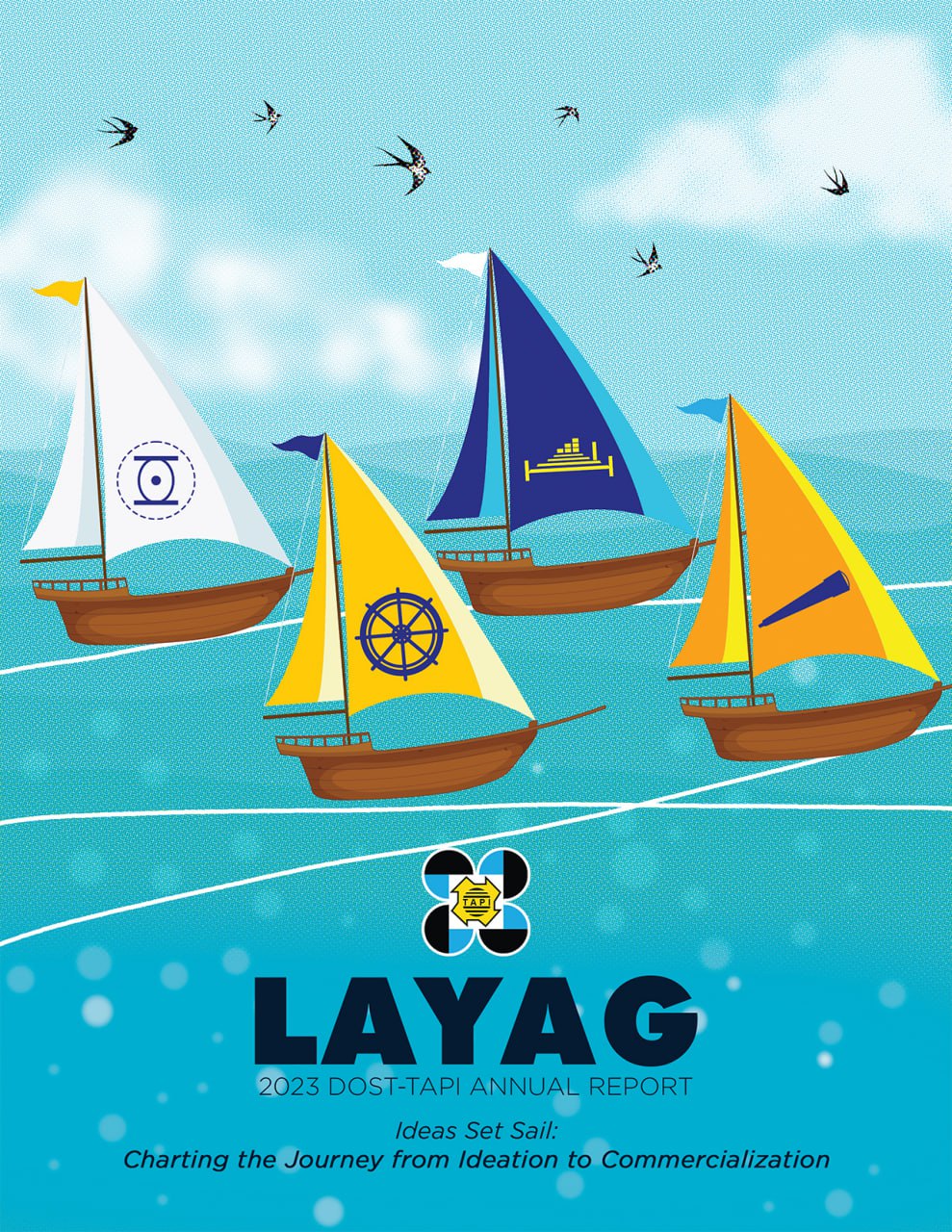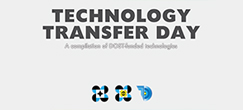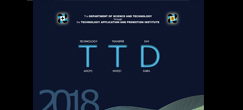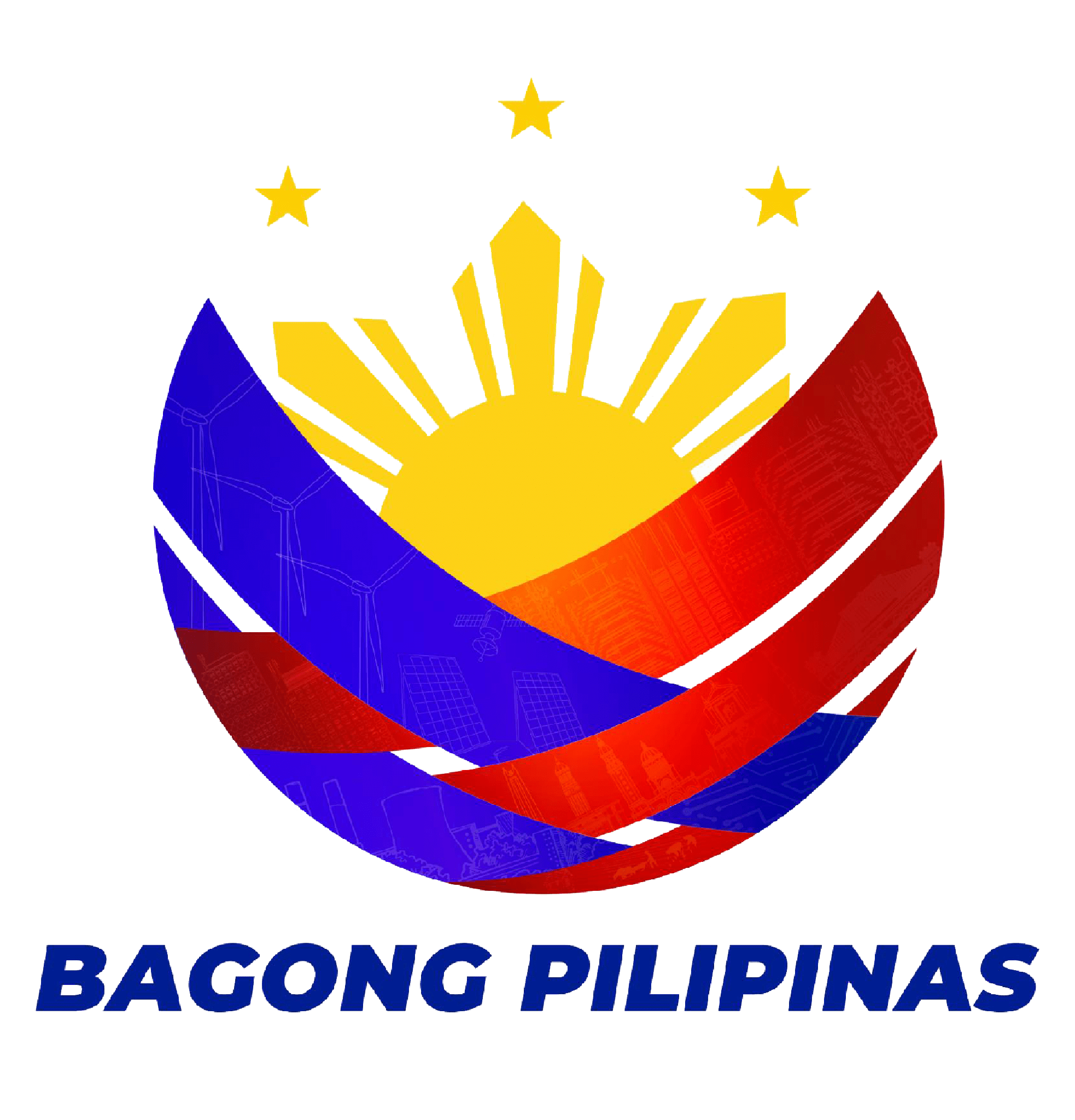- Details
By: Camille Gonzales
When we hear the names of famous Filipino men and women, our minds go straight to their inventions. Fe del Mundo invented the bamboo incubator and Dado Banatao invented the 10-Mbit Ethernet CMOS.
But what we know of them only extends to what they created. Who are the people behind the inventions? And what pushed them to invent in the first place?
This is what the Department of Science and Technology (DOST) - Technology Application and Promotion Institute (TAPI) wants to showcase with the publication of a new book series, Towards Attainment of Progress through Innovation (TAPI).
The publication is a collection of real stories of real people. The book series seeks to highlight the human side of recipients of invention assistance from DOST-TAPI. Through its programs, the service agency has always been in the forefront of promotion and commercialization of local technologies. DOST-TAPI has supported a number of inventors throughout the years, and now it aims to tell their stories through this book series.
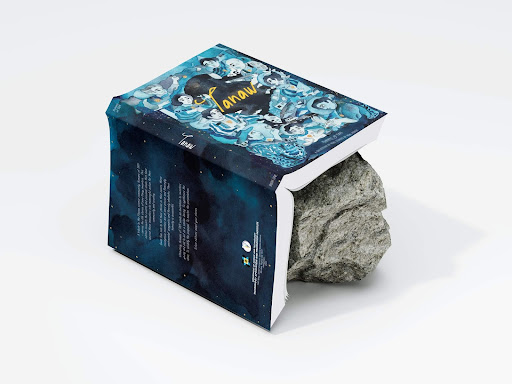
Tanaw is the first edition of DOST-TAPI’s book series entitled Towards Attainment of Progress through Innovations.
- Details
By: Fidel Feria
Roy Nacua first encountered DOST-TAPI by joining the Regional Invention Contest and Exhibits in Cebu. Upon learning of the different invention programs by the agency, he applied for an Intellectual Property (IP) rights assistance to secure his IP assets. He then received a concept prototyping grant for his waste-based construction blocks and another grant for laboratory testing and analyses. Afterwards, he field and market tested his innovation through the Invention-based Enterprise Development (IBED) Program.
An important question for curious inventor Roy Nacua has always been: how can this be done or executed better? His foundation for curiosity can be traced back to her mother’s hometown in Carcar, Cebu.
“My mother was a public school teacher in our hometown,” he said. “At home, we at an early age were exposed to books… [and] science was one of my favorite subjects.”
His enthusiasm for science led him to admire great minds and inventors such as Albert Einstein and appreciate his science teachers.
“They give you inspiration as a kid. Unconsciously, you develop an interest in the things around you. And you’d wonder if a Filipino could do something better in a local environment. You’d ask if there could be a better way to do it? It’s how I [came to] view things.”
These questions would stay within him.
After he completed his elementary and high school education, Roy studied industrial engineering at Colegio de San Jose-Recoletos. Even though his course concentrated more on the management side of things, his passion for innovation never left him.
“Deep in me in those days, I already had that passion to innovate, how to do things better. We had one subject called methods engineering. In methods engineering, [we] focused on finding ways in a more economical, less expensive way. So that’s how things [developed]...”
Upon earning his degree, his transition into the workforce was swift and productive. At a Cebu-based furniture manufacturer, he had fruitful stints as production supervisor and plant manager until he became head of research and development. It was while manning this important position that he deployed his innovation to years-long success.
Roy was able to identify a problem: the material they have been sourcing abroad was expensive, so he took it on himself to find a local, more affordable raw material for their products. He then discovered that pakol—a fish that to many Cebuanos is a delicacy—has usable skin that is routinely disposed at marketplaces. He researched more about pakol skin, which led to its use in their production. His curiosity—how can this be better—led to their increased product orders and sales in the mid-1990s.
He left his company after 13 successful years. Never one to rest on his laurels, he kept himself busy.
In 2017, at the encouragement of his friends, Roy entered Department of Science and Technology - Technology Application and Promotion Institute’s (DOST-TAPI) Regional Invention Contest and Exhibits (RICE) for the first time. The results surprised him: his construction block made from waste (EPS) won the Likha Award for Creative Research. His victory led to a prototyping grant from DOST-TAPI to further develop his invention towards its commercial and industry-grade version.
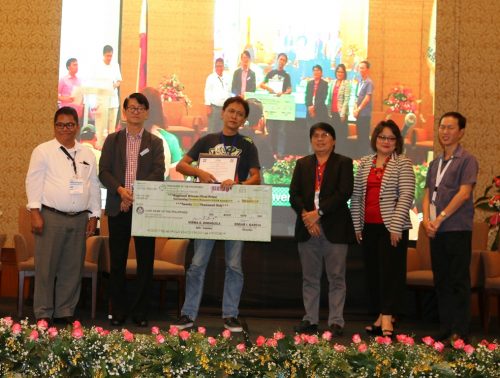
Inventor Nacua during the awarding ceremony of the 2017 RICE where he won the LIKHA Award for Creative Research. (Image source: DOST Region 7 website)



